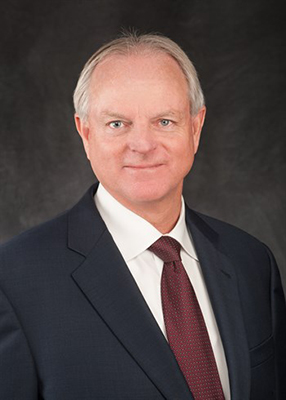Texas A&M Expert Testifies On Preparing For Future Public Health Threats And Disasters
Story by Megan Myers, VMBS Communications

Dr. Gerald Parker, Texas A&M University’s associate dean for Global One Health at the School of Veterinary Medicine & Biomedical Sciences (VMBS) and director of the Pandemic & Biosecurity Policy Program, recently testified before the U.S. House Committee on Energy and Commerce Subcommittee on Health on the importance of being prepared for emerging threats and disasters.
The subcommittee, which includes Reps. Michael Burgess and Dan Crenshaw of Texas, discussed the reauthorization for the Pandemic and All-Hazards Preparedness Act (PAHPA) along with a number of public health-related bills. PAHPA was first signed into law in 2006 to provide the federal government with the authority to prepare and quickly respond to emergencies, such as Hurricane Katrina, the emergence of H5NI (avian influenza A), and other public health emergencies, whether deliberate, accidental, or natural.
PAHPA has been reauthorized twice since 2006, with the current authorization set to expire in September. As a result, Congress is working to find consensus on a new bill.
As an expert on pandemic preparedness, public policy, and biosecurity, Parker was invited to speak on the importance of public health preparedness and provide recommendations for strengthening PAHPA and improving the United States’ ability to handle medical and public health emergencies.
Parker also served as the U.S. Department of Health and Human Services’ first principal deputy assistance secretary for preparedness and response, a position that was established after the 2006 legislation went into effect.
“The threats we face range from terrorism, chemical, biological, radiological, nuclear, cyber, natural disasters, climate change, pandemics, and more that we do not yet grasp,” Parker said during his opening remarks. “These are hard problems, and we must have the right tools to confront an ever-expanding list of potentially catastrophic threats.”
As the current PAHPA was drafted before the SARS-CoV-2 pandemic, the hearing provided an opportunity to discuss lessons learned and address areas for improvement.
Parker emphasized the importance of close working relationships between the federal government and state and local partners who are on the front lines, as well as the need for a deputy assistant to the President for biodefense, global health security, and pandemic preparedness in the White House.
Parker also encouraged the committee to finish its work.
“You have an opportunity to meet this moment. Don’t waste it,” he told the committee. “The risks we face certainly won’t wait for us to be prepared.”
Of equal importance, Parker emphasized, is the need to ensure that PAHPA be useful in addressing hazards caused by new dual-use technologies, infectious diseases, and other emerging threats.
“There is one thing we can be assured of in the future — we will be surprised,” Parker said. “We must avoid fighting the last war, and we must avoid complacency.”
Texas A&M University experts across various programs and schools have provided pandemic and biosecurity guidance to decision makers at every level of government.
Global One Health, housed within the VMBS, helps to advance in policy, research, education, and service by understanding the synergy of animal, human, and environmental sciences.
The Pandemic & Biosecurity Policy Program, part of the Texas A&M Bush School of Government & Public Service, is an educational, research, and policy program targeting current challenges in pandemic preparedness, biosecurity, and biosafety.
Additionally, the Texas A&M Health Science Center plays an important role in educating the health care workforce of the future, delivering health services in Texas communities, and advancing knowledge and leadership in public health.
###
For more information about the Texas A&M College of Veterinary Medicine & Biomedical Sciences, please visit our website at vetmed.tamu.edu or join us on Facebook, Instagram, and Twitter.
Contact Information: Jennifer Gauntt, Director of VMBS Communications, Texas A&M College of Veterinary Medicine & Biomedical Sciences, jgauntt@cvm.tamu.edu, 979-862-4216


